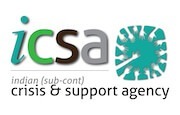Migration & Settlement
We assist migrants on their pathway to permanent residency and citizenship, and advocate against exploitation.
Making Australia Home
Large numbers of people from across South Asia come to Australia with the aim of making the country their permanent home.
Most arrive on some form of a temporary visa on a pathway to gain permanent residency and take up citizenship. It takes an average of 10 years to become a permanent resident and can be longer.
The first years can be difficult and lonely; new systems, obligations, fees, no support, no family and high expectations are just a few of the challenges.
ICSA assists people to understand the landscape and ease the transition for.
- Temporary Resident Migrants (TRM)
- New Arrivals & Settling in Australia
- Gaining Permanent Residency
- Becoming a Citizen
- Considering moving to Australia
- Understanding Migration Pathways
ICSA actively advocates for improvements in the migration systems that can offer a better experience to the migrant and [cost] benefits to systems.

Temporary Resident Migrants
The changing trends of the Australian Migration System means more people than ever before arrive on some form of temporary visa. The most common being student or skilled visas.
We refer to these people as Temporary Resident Migrants (TRM) as like other residents TRM take employment, pay taxes and contribute to Australia’s GDP.
Despite making fair and equal contribution to the economy, TRM have little to no Government support in settlement. Many supports that are taken for granted are simply not available to TRM.
When things go wrong TRM can struggle to find treatment for health; support for wellbeing and face complicated legal challenges. All of which can be incredibly traumatic.
Due to the TRM’s fear of authority and deportation; at ICSA we offer a full case management service. With this we can assist with managing multiple issues, cultural intersections and make quality referrals for critical support in migration and legal matters.
Migration Pathway Trauma
Migration Pathway Trauma (MPT) is a level of compounding stress that builds up through the process of migration, settlement and getting citizenship.
A key issue is that this trauma is rarely acknowledged, fails to be recognised and is yet to be properly understood. It is understood for refugees and humanitarian entrants due to the nature of their displacement, however people who choose to change countries are not considered to have that experience labelled as potentially traumatic. The MPT can build in several ways.
1. The precarious nature of a temporary residency means TRM:
- are vulnerable to exploitation,
- experience systemic injustices,
- incur considerable financial stress due to added expenses and
- will suffer in silence for the threat of deportation or loss of visa
2. Many people come to Australia when young and put off getting into permanent relationships and having a family until they secure residency. They can lack self-validation by being outside the cultural norm in their society.
3. TRM can suffer greater health problems due to an absence of preventative health options and failure of timely medical treatment.
4. The mix of challenges is poorly understood by family back home which compounds the sense of isolation and loneliness. The build-up of stresses affects mental health, for which again there is little appropriate support.
ICSA provides cultural counselling for TRM who are dealing with mental health or struggling to deal with challenges.


Migration & Visitor Support
We offer a range of support to assist in the migration and settlement process, regardless of visa or residency status.
We also support people who arrive on visitor visas and stay longer terms, such as parents or carers, regardless of whether they are applying for residency.
The services we provide are bespoke and developed from grass roots from client needs.
- Full case management
- Specialist reports in migration matters
- Administrative Support: preparing and validating documentation (JP).
- Language: translation, interpretation
- Tribunal Advocacy; Preparing for and attending hearings.
- DFV & Legal intersections – support TRM’s in DFV or legal challenges.
- Complex migration: working closely with professional such as lawyers or migration agents to advocate the client’s position or cultural circumstance.

